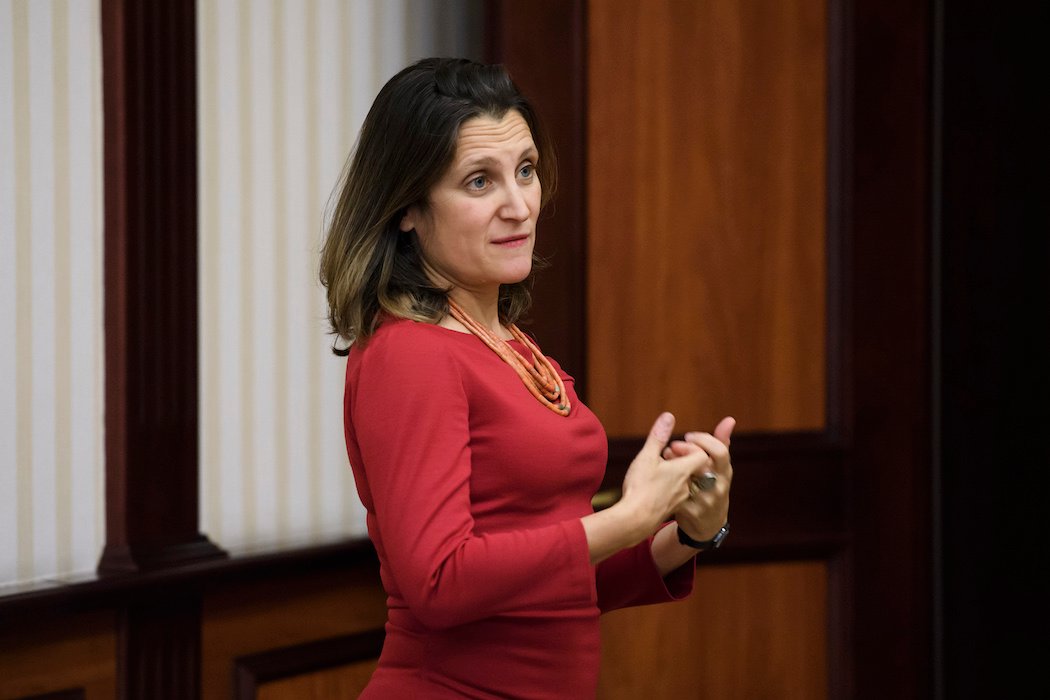SR&ED expands eligibility while pension fund investment incentives get sweetened.
The Government of Canada has announced a fourth, $1-billion CAD round of funding for the Venture Capital Catalyst Initiative (VCCI) among a slew of other initiatives and updates ahead of its delayed Fall Economic Statement.
Under VCCI, the federal government provides one dollar for every three dollars raised by select indirect fund managers up to a cap. The latest $1-billion VCCI round will include “more enticing terms” for those funds, but no other details were provided.
In addition to renewing VCCI, the feds also plan to make it more attractive for Canadian pension funds to invest domestically with two other matching programs: $1 billion for mid-cap growth companies and up to $45 billion to develop AI data centres. The government also announced updates to the Scientific Research and Experimental Development (SR&ED) program, expanding both the eligibility requirements and tax incentives.
“Canada needs to fight harder than ever for capital.”
Chrystia Freeland
Deputy Prime Minister
Finance Minister and Deputy Prime Minister Chrystia Freeland announced the moves today while speaking at TMX Group in Toronto.
“Canada needs to fight harder than ever for capital, including facilitating and supporting the investment of Canadian capital here at home,” Freeland said in a statement.
As of next fiscal year, the SR&ED program will allow businesses to claim capital expenditures again, reversing a Harper government-era cut. Public companies will also be permitted to claim the 35-percent tax incentives for research and development (R&D), when they previously could only claim 15-percent, non-refundable credits.
The feds are also hiking the annual expenditure limit from $3 million to $4.5 million, allowing companies to claim up to $1.575 million per year. The SR&ED credit is currently applicable for companies with taxable capital under $10 million, but that has been upped to $15 million. Now, companies can continue receiving tax credits until a phase-out threshold of $75 million, rather than $50 million.
“SR&ED has been a crucial tool for fostering innovation, but has been somewhat challenging for companies progressing beyond early-stage R&D,” said Aliya Ramji, co-founder and partner at MT Ventures, at today’s press conference. “I’m sure I speak for my colleagues in the industry when I say that I’m heartened to see that you and our government recognize the vital importance of the innovation research and development sector.”
Council of Canadian Innovators (CCI) President Benjamin Bergen said that though the expanded tax credit eligibility is positive, the updates to SR&ED do not go far enough.
“We had hoped to see the federal government take meaningful steps to stop subsidizing the R&D of foreign multinationals that contribute much less to the Canadian economy than homegrown companies, and we had hoped that the government would bring more transparency to SR&ED,” Bergen wrote in a statement.
In February, CCI released recommendations for SR&ED reform amid an ongoing program review by the federal government. The organization, which represents the interests of Canadian scaleups, advocated for the program to incentivize domestic intellectual property (IP) creation through a patent-box regime. A patent box regime would give tax breaks to profits generated from domestic IP. CCI also called on the government to ensure the program does not help fund R&D projects where the IP ends up owned by foreign companies.
Some in the Canadian tech industry believe that the existing SR&ED rules precluded companies with long-term research needs, such as life sciences companies, from accessing critical incentives. At the BetaKit Town Hall: Vancouver in October, AbCellera vice-president of business development Anne Stevens said that companies who need to go public earlier lose out on tax credits.
Freeland announced a slew of programs and rule changes to incentivize domestic pension fund investment, which has been a topic of national debate in recent months.
To attract more investment, the feds are removing the cap that currently restricts pension funds from owning more than 30 percent of a Canadian company, making it easier for them to acquire controlling stakes.
The government is also committing $1 billion to invest alongside pension funds in mid-cap growth companies, putting in one dollar for every three from pension fund managers. Freeland said the investments will be concessional, or with favourable terms, and made by a qualified fund manager.
The second program will dedicate a maximum of $45 billion in loans and equity to develop AI data centres, contingent upon two-to-one investor interest from pension funds. The Globe & Mail reported that the concerned data centres would have to be powered by green energy, but today’s announcement made no mention of energy requirements.
“Together, these initiatives are positive steps toward fostering a stronger, more innovative private capital market in Canada,” the Canadian Venture Capital Association said in a statement.
Freeland noted that she will have more to say about these measures on Dec. 16 when she delivers the federal government’s Fall Economic Statement. No longer fall, this year’s statement comes later than in previous years and just one day before the federal government breaks for the holidays.
With files from Josh Scott.
Feature image courtesy Wikimedia Commons.







